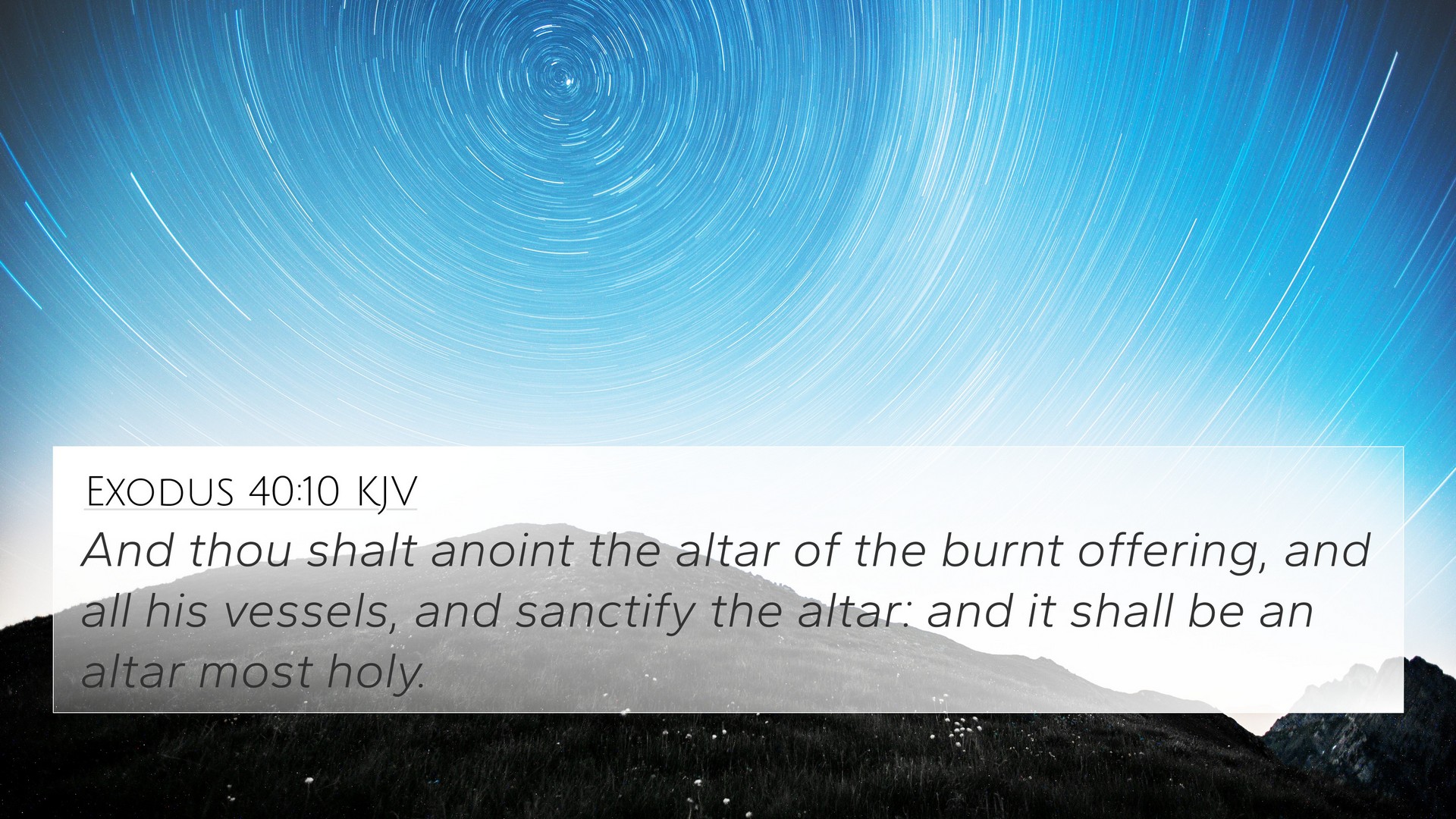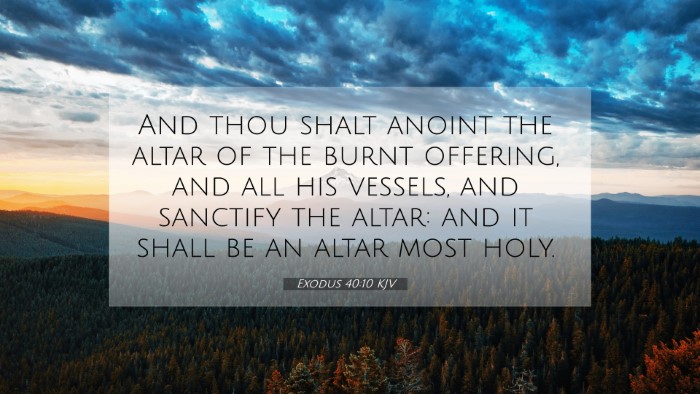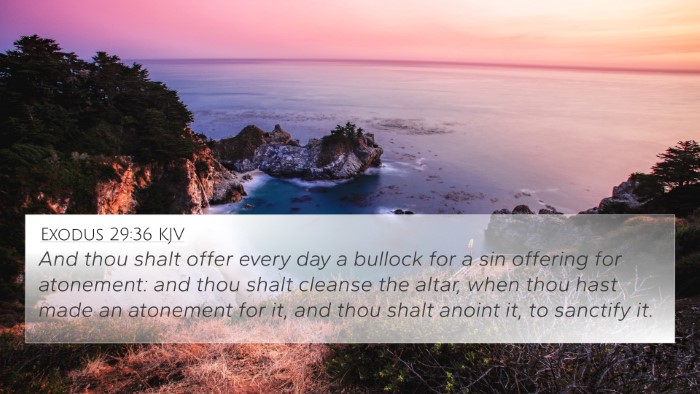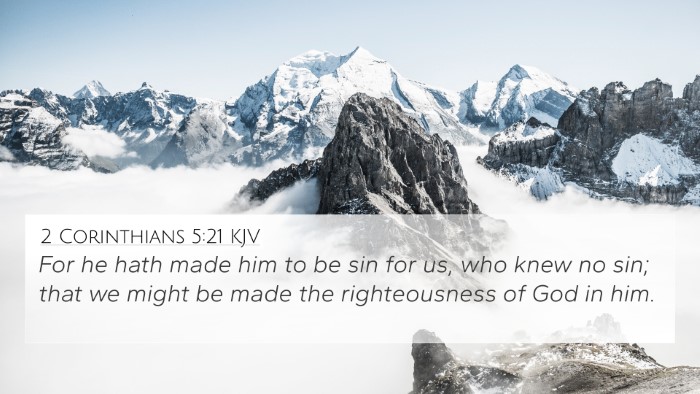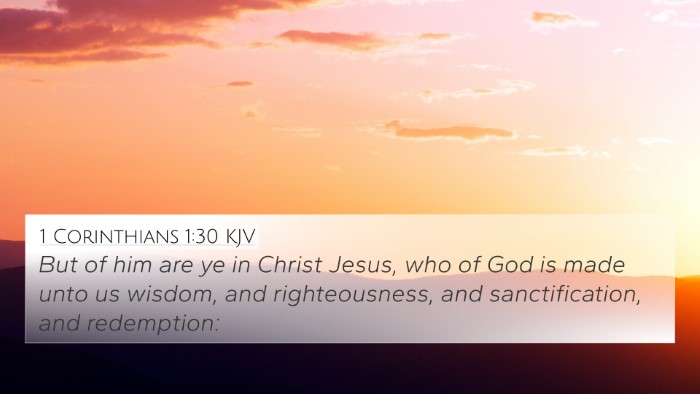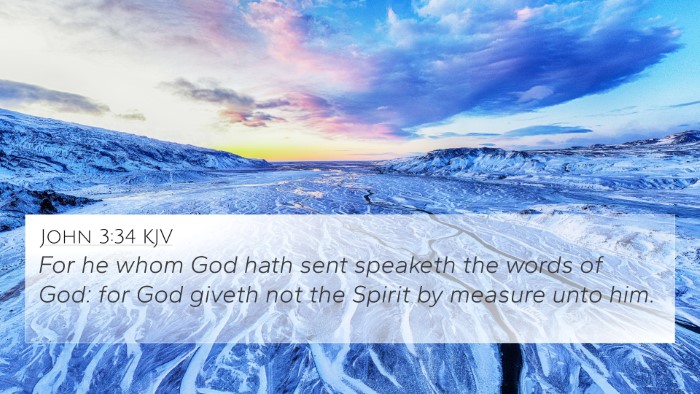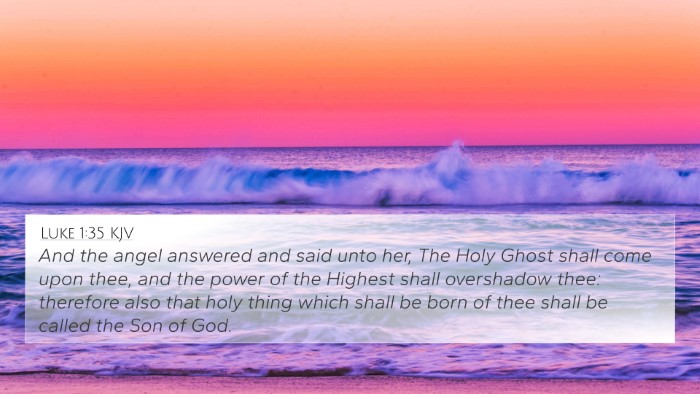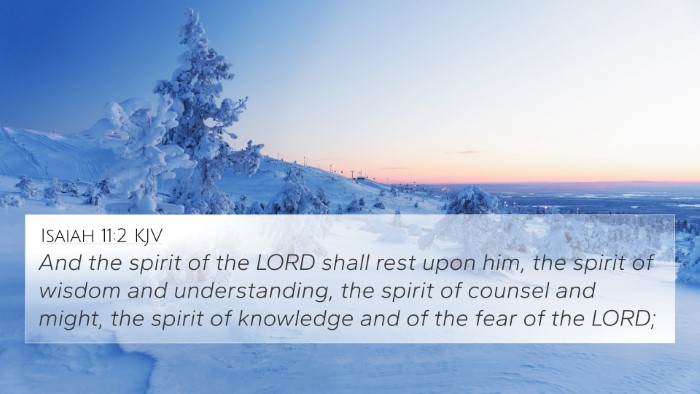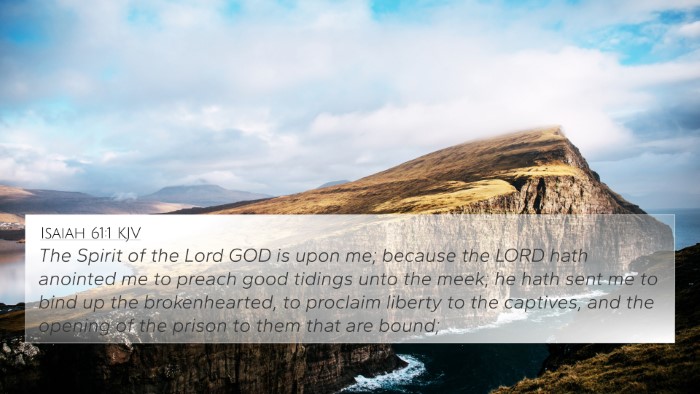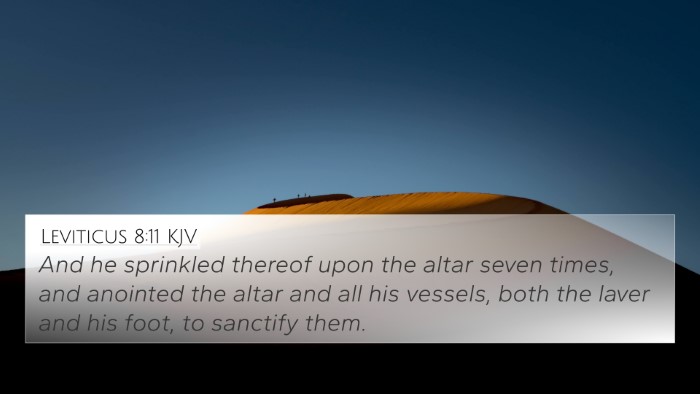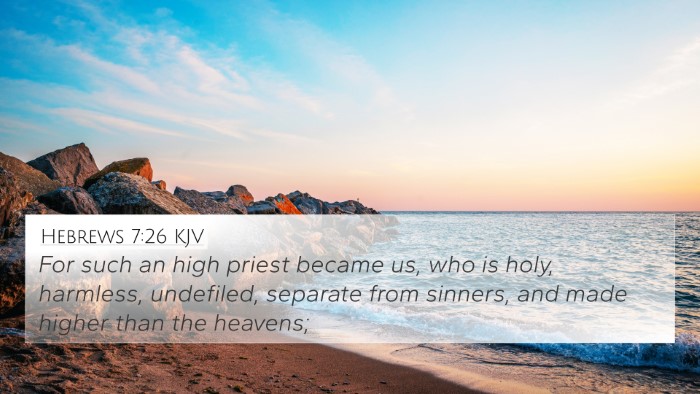Understanding Exodus 40:10
Exodus 40:10 states, “And thou shalt anoint the altar of the burnt offering, and all his vessels, and sanctify the altar; and it shall be an altar most holy.” This pivotal verse emphasizes the act of consecration and the importance of holiness in worship.
Contextual Overview
The book of Exodus marks a significant transition for the Israelites, guiding them from slavery to becoming a covenant people. This verse falls within the instructions for setting up the Tabernacle—the dwelling place of God among His people. The anointing signifies setting apart this altar for divine use, emphasizing God’s holiness and the seriousness of sacrificial worship.
Commentary Insights
Various commentators provide insights into this verse:
- Matthew Henry: Henry emphasizes that the act of anointing the altar is a declaration of its sacred status. He stresses the need for believers to recognize the seriousness of entering God’s presence, as the altar symbolizes the meeting point between God and humanity.
- Albert Barnes: Barnes points out that the instruction highlights the necessity of sanctification. The altar and its vessels act as a reminder of the holiness required when approaching God. He draws parallels between this sanctification and the sacrifices that echo throughout Biblical history.
- Adam Clarke: Clarke discusses the rituals surrounding the anointing, mentioning the significance of the consecrated altar. He indicates that the altar’s holiness is reflected in its functionality, stressing the importance of purity in worship practices.
Thematic Connections
This verse resonates with numerous Biblical themes, highlighting the significance of holiness, worship, and God's presence. Below are relevant themes and cross-references:
- Holiness of God: Leviticus 11:44 - “For I am the Lord your God; sanctify yourselves, and be holy; for I am holy.”
- The Role of Sacrifice: Hebrews 9:22 - “And almost all things are by the law purged with blood; and without shedding of blood is no remission.”
- Divine Presence: 1 Corinthians 3:16 - “Know ye not that ye are the temple of God, and that the Spirit of God dwells in you?”
- Anointing and Consecration: 1 Samuel 16:13 - “Then Samuel took the horn of oil, and anointed him in the midst of his brethren: and the Spirit of the Lord came upon David from that day forward.”
- Purpose of Worship: Psalm 29:2 - “Give unto the Lord the glory due unto his name; worship the Lord in the beauty of holiness.”
- Cleanliness in Worship: Isaiah 52:1 - “Awake, awake; put on thy strength, O Zion; put on thy beautiful garments, O Jerusalem, the holy city.”
- Construction of the Tabernacle: Exodus 25:8 - “And let them make me a sanctuary; that I may dwell among them.”
Practical Implications
This verse prompts reflection on the nature of worship and the importance of approaching God with reverence and intentionality:
- Understanding the Sanctity of Worship: Believers are reminded to consider how they prepare and approach worship, recognizing its sacredness.
- Connection with Historical Practices: This verse links to wider Biblical practices around sacrifice, underscoring that acts of worship are rooted in historical significance.
- Personal Anointing: Modern interpretations may delve into the notion of personal sanctification, reflecting on how individuals set aside aspects of their lives for God’s purpose.
Further Cross-References and Study Tools
Utilizing cross-references can enrich your understanding of Exodus 40:10. Here are some tools and methods for effective Bible cross-referencing:
- Use a Bible concordance to find related verses and themes.
- Incorporate a cross-reference Bible study to explore connections.
- Employ a Bible cross-reference guide for comprehensive materials.
- Consult a Bible chain reference system for thematic exploration.
- Study Bible reference resources that provide context and commentary.
Conclusion
In summary, Exodus 40:10 serves not only as a directive for the Israelites but also as a timeless reminder of God’s demand for holiness and the structure of worship. By understanding its implications through various Biblical narratives and commentaries, believers can better navigate their relationship with the divine, seeking out meaningful connections between scripture and personal faith practices.
